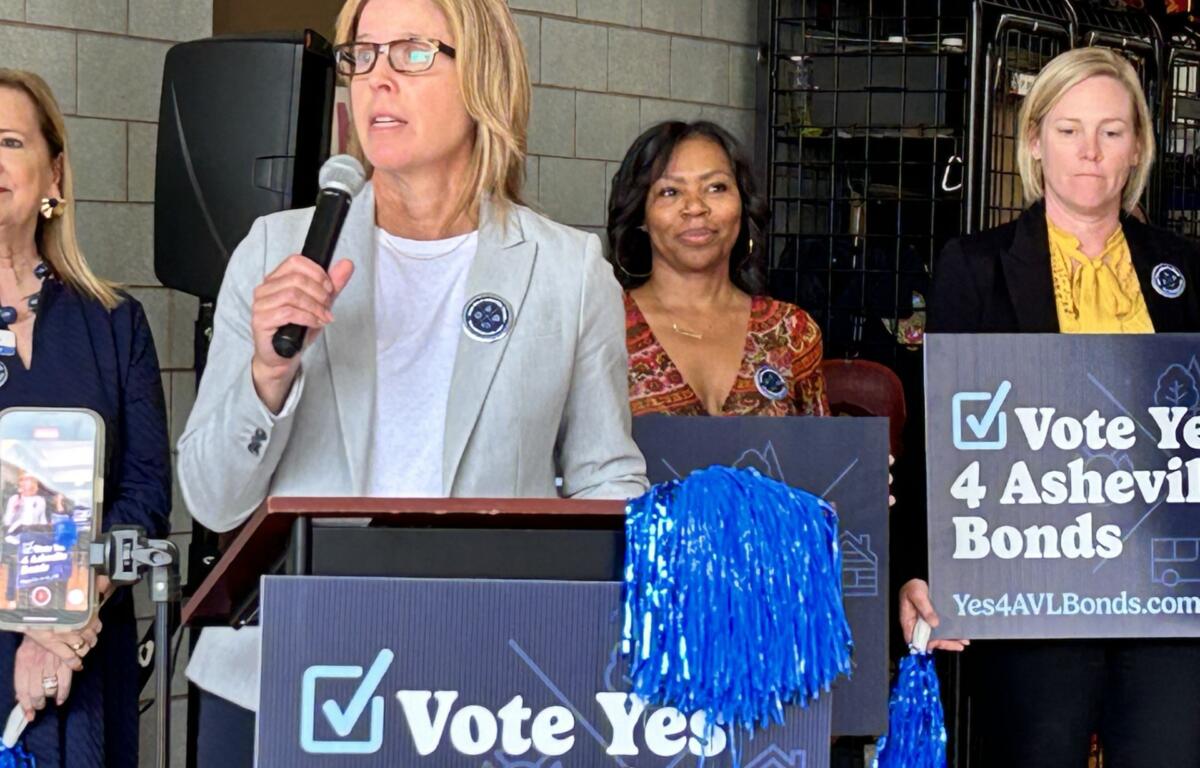ASHEVILLE, N.C. (828newsNOW) — Community leaders gathered at East Asheville Fire Station 9 on Thursday to kick off a campaign supporting four city bond referendums that will be on the ballot this fall.
The bonds — set at $20 million each — will be used for transportation, housing, parks and recreation and public safety facilities.
“There may be a few races this fall that get more attention than our bond referendum,” Mayor Esther Manheimer said. “But this is a vote that we can all agree on. Vote yes for Asheville bonds so we can prepare for the future and move Asheville forward.”
Earlier this summer, Asheville City Council voted to put the bond questions on the Nov. 5 ballot — part of a long-range facility plan and an important second step building on the success of the 2016 bond package, Manheimer said.
“Council recognized that we simply cannot make the kind of long-term investments needed through our annual operating budget. But it’s not just our current needs that these bonds will address. Asheville is growing, and we need to prepare for that growth,” the mayor said.
The mayor was joined by advocates in each of the bond areas, including Kate Pett (Thrive Asheville – housing), Mike Sule (Asheville on Bikes – transportation), Bonnie Knox (Asheville Pickleball Association – Parks and Recreation), Welcker Taylor (Asheville Firefighters Association – public safety) and Nick Hinton and Tommy Seijo (Land of Sky Association of Realtors). While each representative noted their passion, they all applauded the balanced proposal and emphasized the importance of supporting all four bonds.
The campaign to support the bonds was organized by the Asheville Area Chamber of Commerce and led by a workgroup of community volunteers.
“This is a long ballot this year, and it is crucial that voters go all the way to the end and vote yes for Asheville bonds,” Asheville Chamber president Kit Cramer said.
CLICK HERE TO LEARN MORE ABOUT THE CAMPAIGN
City Council Member Maggie Ullman said even if the bonds fail, the projects that would benefit from them would still be there.
“If they fail, these projects don’t get any cheaper over time. They just get more and more and more expensive. So, we need to figure out a way as soon as we can to really reinvest in our infrastructure so that we can speed up the incremental pace of maintenance on our needed assets in our community,” Ullman said.


